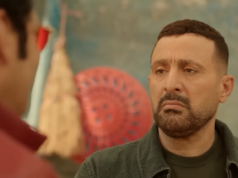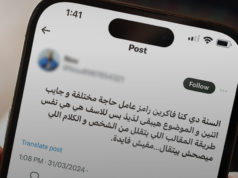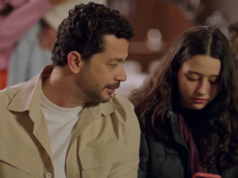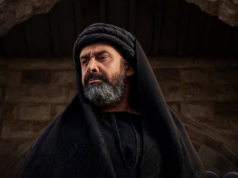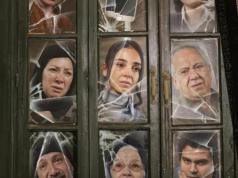Starring Hanan Motawea, Sedky Sakhr, Amr Wahba, and Mourad Makram, “Soot We Sora” is one of the most followed off-season shows right now.
The series discusses the gripping tale of Radwa, who found herself trapped in a distressing experience of enduring workplace harassment at the hands of her manager. While many shows and films have broached the subject of workplace harassment in recent years, “Soot We Sora” distinguished itself by seamlessly blending this crucial and sensitive issue into a suspenseful and crime drama narrative.
On the artistic and acting front, all the stars displayed exceptional control over the characters they portrayed, whether it was the portrayal of malevolent characters like Essam El Sayad, played by Mourad Makram, or the ones with profound transformation and character arcs, such as Lotfy Aboud, masterfully played by Sedky Sakhr.
However, the impact of this series and its central themes extended beyond the characters and plot.
It’s not just about portraying the challenges that women face when dealing with workplace harassment, a theme as ancient as time itself.
What sets this series apart is its unflinching focus on the societal reactions of those surrounding the victim. It delves into the all-too-common tendency of unfairly blaming the woman for actions she had no responsibility for. Instead, she is often cast as the instigator, solely accountable for tarnishing the man’s reputation in the story and causing a scandal.
This narrative casts a spotlight on the deep-seated bias that unjustly implicates women, regardless of their innocence in the matter.
Moreover, this series goes beyond mere drama. It vividly illustrates how women can be betrayed by those closest to them when they dare to speak up about their rights. This betrayal extends to even their immediate family members.
In reality, many women remain silent because they lack the support needed to seek justice through legal means. While women today are less silent than they were a few years ago, there’s still a pressing need for a complete shift in how society perceives harassers – they should be the ones viewed with shame, not the victims.
What are your expectations for the series? And do you agree with the way it depicts the struggle? Share your thoughts in the comments!









